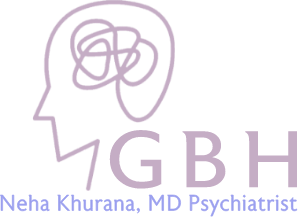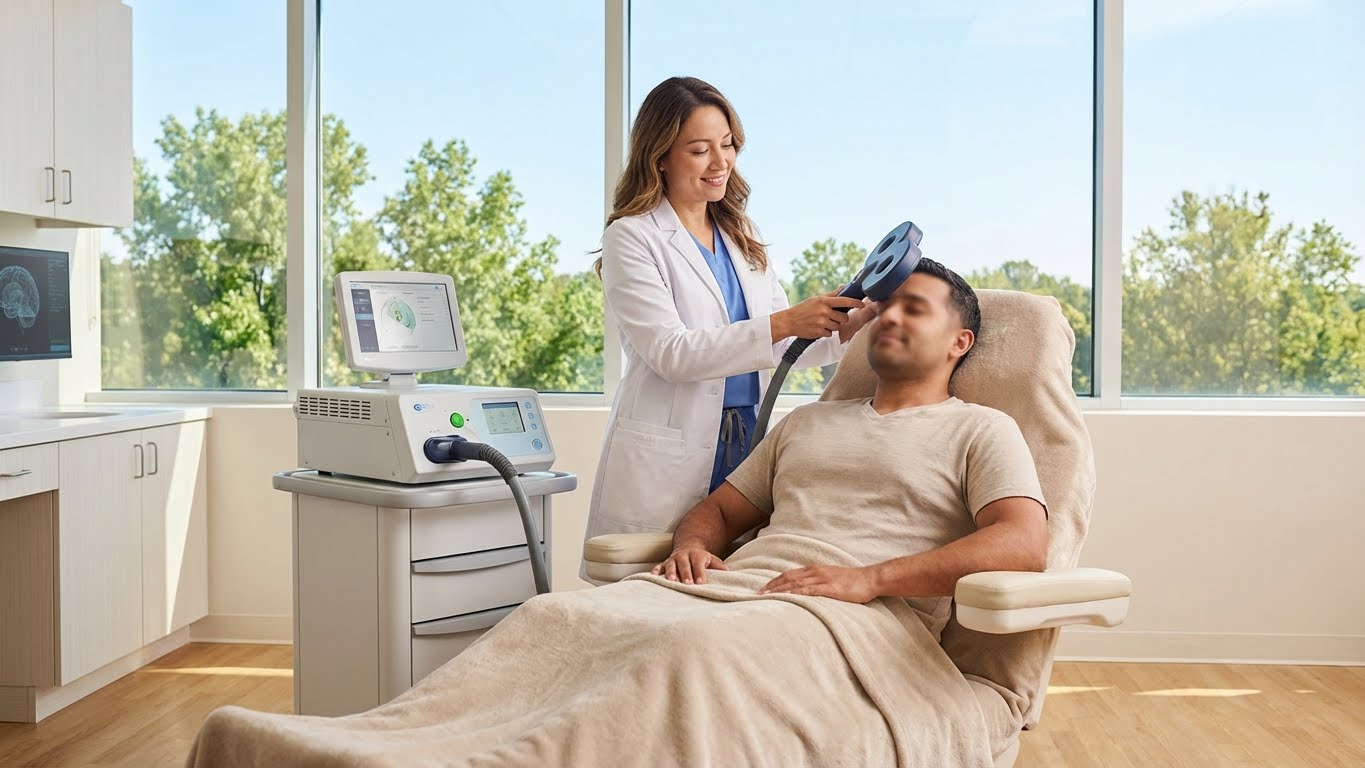Transcranial Magnetic Stimulation (TMS) has gained increasing attention in recent years as a non-invasive treatment option for individuals living with depression, particularly those who haven’t found relief with traditional medications. But with its growing popularity, so have online searches like “Is TMS safe?”, “TMS therapy side effects,” and even “TMS ruined my life.” These concerns are valid, and they deserve thoughtful, science-backed answers.
We believe in empowering patients with honest, evidence-based information. So, let’s examine the research on the safety of TMS therapy.
What Is TMS Therapy?
TMS, or Transcranial Magnetic Stimulation, is an FDA-approved, non-invasive treatment that uses magnetic pulses to stimulate underactive areas of the brain associated with mood regulation. It is most commonly used to treat treatment-resistant depression, meaning depression that hasn’t responded well to traditional therapy or medication.
A TMS session is typically done in an outpatient setting, where the patient remains awake and seated comfortably. TMS treatment usually takes place over several weeks in short, manageable sessions.
Is TMS Therapy Safe?
Research has consistently shown that TMS therapy is safe and well-tolerated for most people. Unlike medications that affect the whole body, TMS targets specific brain areas without systemic side effects.
More than a decade of clinical trials and real-world use support the safety of TMS. It’s approved by the FDA not only for depression but also for OCD and smoking cessation in some instances.
What Are the Side Effects of TMS Therapy?
TMS therapy is generally associated with mild and temporary side effects, including:
- Scalp discomfort or tingling during or after treatment
- Mild headache
- Lightheadedness or fatigue
These symptoms often fade after a few sessions, and adjustments to intensity levels can improve comfort.
In some cases, individuals may experience:
- Temporary hearing sensitivity (if ear protection isn’t used)
- A seizure (extremely rare—estimated to occur in fewer than 1 in 10,000 treatments)
At Georgia Behavioral Health, we perform screenings to minimize these risks and closely monitor each patient during their care plan.
Addressing the Fear: “TMS Ruined My Life”
You’re not alone if you’ve searched this phrase or read alarming stories online. But it’s important to remember that negative experiences often get amplified, especially in anonymous forums.
While no treatment works perfectly for everyone, most people who complete TMS report improved mood, focus, and daily functioning. We encourage patients to speak with a provider to explore their concerns, medical history, and the real risk-benefit balance.
TMS vs. Traditional Medication: A Safer Alternative?
TMS vs Traditional Medication: Which is safer? One of the most significant advantages of TMS is that it doesn’t involve medications, making it a good fit for people who:
- Struggle with medication side effects
- Want to avoid additional systemic treatment
- Experiencing treatment-resistant depression
TMS also has no known long-term cognitive side effects or withdrawal symptoms—another reason it’s considered safe for ongoing use.
Who is a Good Candidate for TMS?
TMS may be a safe and effective option for adults who:
- Have a diagnosis of major depressive disorder (MDD)
- Have not found relief with at least one antidepressant trial
- Do not have a history of seizures or implanted metal devices near the head
Your provider will fully evaluate to determine if TMS is right for you.
Conclusion: Safe, Effective, and Worth Exploring
TMS therapy, a safe and effective treatment, offers hope for individuals struggling with treatment-resistant depression.
TMS could be a path worth exploring if you’ve been feeling stuck or discouraged in your mental health treatment journey.
Want to learn more about whether TMS is right for you? Contact Georgia Behavioral Health today to schedule a consultation.
Frequently Asked Questions (FAQ)
1. Is TMS therapy safe?
Yes, TMS therapy is FDA-approved, well-researched, and widely considered safe. This reaffirmation of its safety should instill confidence in those considering this treatment.
2. What are the side effects of TMS?
Most side effects of TMS therapy are mild, such as a headache or scalp discomfort. Serious side effects are infrequent, providing reassurance and peace of mind to those considering this treatment.
3. Can TMS damage your brain?
No. There is no evidence that TMS causes brain damage.
4. Is TMS therapy painful?
Some patients feel a tapping sensation or scalp discomfort, usually manageable and temporary.
5. How many TMS sessions do I need?
Typically, 20–36 sessions over 4–6 weeks, followed by personalized care if needed.
6. Does insurance cover TMS?
Many insurance plans cover TMS for treatment-resistant depression. Our team can help you verify your benefits.
7. Can I do TMS alongside therapy or medication?
Yes! TMS can complement existing treatments for a more comprehensive approach, which helps to maximize the benefits of both treatments.

